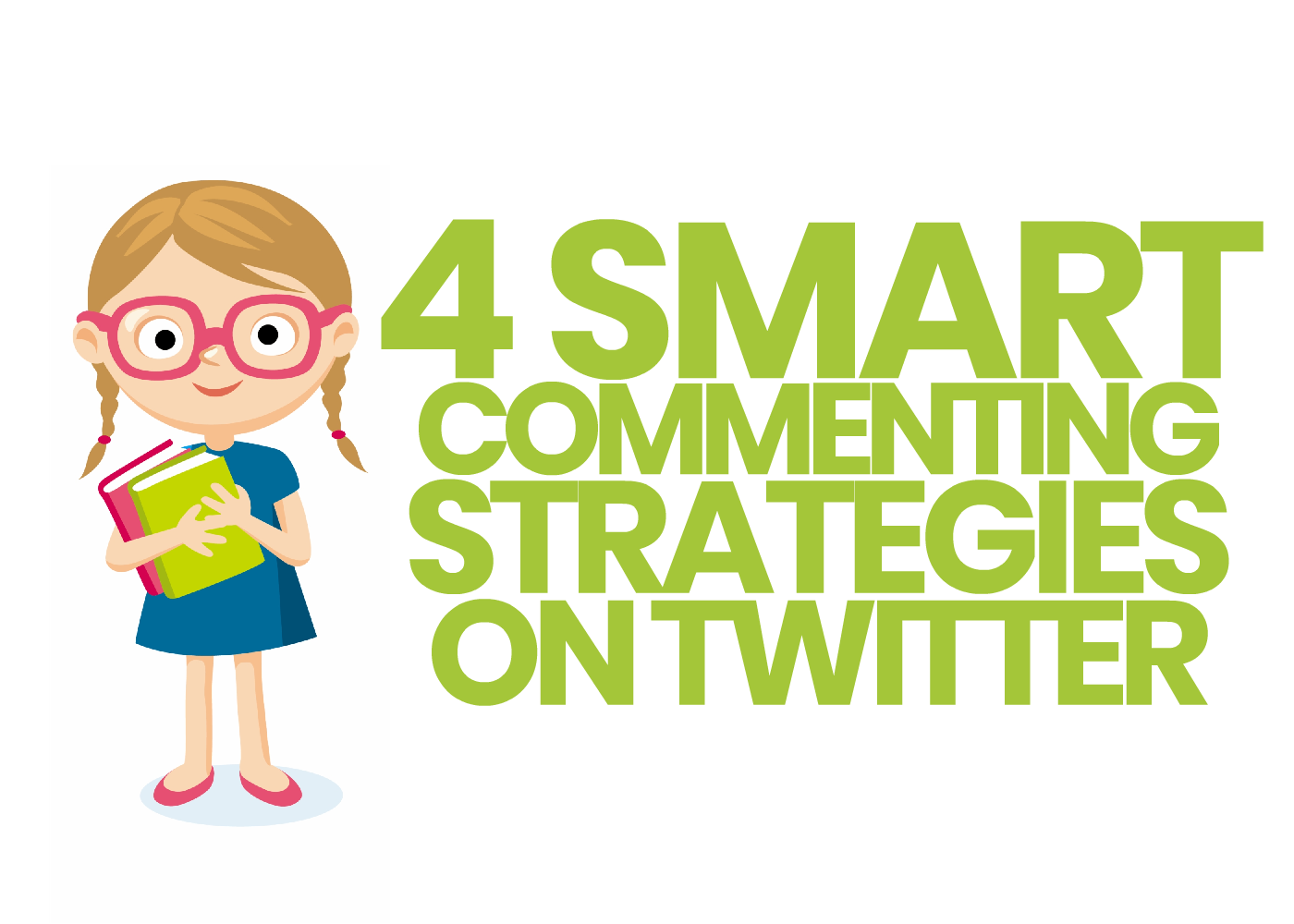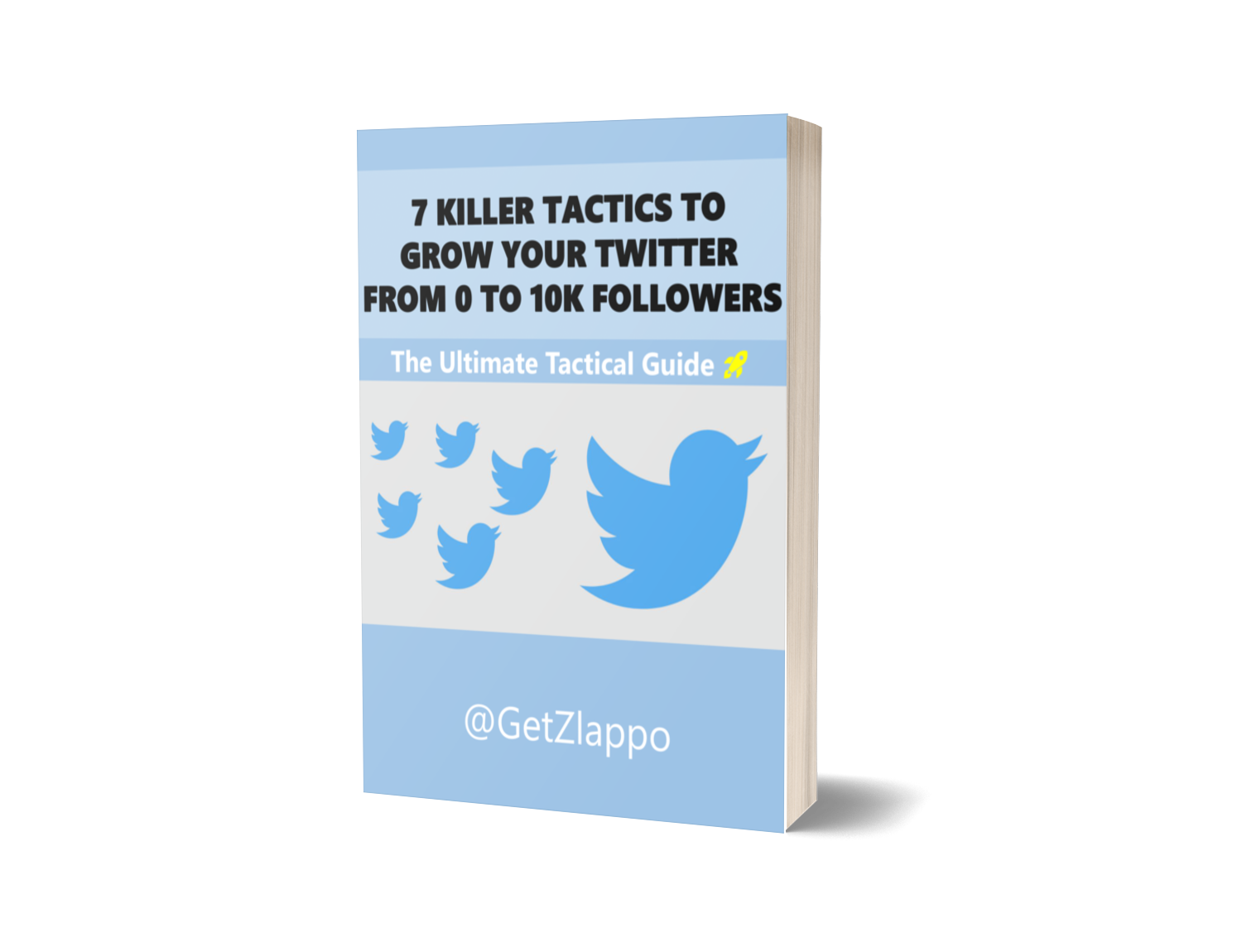
4 Smart Twitter Commenting Strategies to Grow Your Followers (with Examples)
9 min read jay@zlappo.com Back to Blog
Commenting on other large accounts on Twitter is possibly the fastest, easiest way to grow your own account, particularly when you still have relatively few followers (anything less than 5,000).
While creating engaging original content is important to build an audience, its impact is diminished when you're only preaching to a few dozens or hundreds of followers; it can often feel like you're talking to a wall.
(And for me to say that, it says a lot, since I'm the founder of a Twitter scheduling app.)
When you're small, you want as much visibility as possible.
Fortunately for all of us, Twitter is inherently built for networking, so by commenting on other large accounts, you're able to gain access to others' followers, appear before them, intrigue them enough to click on your profile, and convince them with your snazzy bio to follow you.
Classic leveraging on the following of others to build your own.
But how?
Everyone says to comment on other large accounts, but no one really says how to do it.
Get your basics right first 🙂
Now. Before you get all excited, we have to make sure you get a couple of things right first:
a. Profile optimization
First, your profile needs to be 100% FULLY-OPTIMIZED.
This means, when people click on your profile, you want to wow them so much that they have no choice but to click Follow.
Why should they follow you? What benefits can they get from staying in touch with you?
I can write an entire post on profile optimization (in fact, I probably will next week -- update: I did), but basically use a descriptive name with custom fonts and emojis for eye-catchiness, a profile picture with a face (even if it's a graphic, still have a FACE), include a persuasive value proposition (e.g. "I teach you how to monetize your Twitter following to build recurring income"), and always link to your offer in the URL section and never ever leave it blank.
Because when/if you go viral, you want your profile to be ready to collect revenue from day one.
The last point really irks me -- it's better to put a Patreon link to support you than nothing at all.
b. Follow 20-30 large accounts, add them to a private list called "Snipe"
This is where you live now. Leave 20-40 comments per day consistently for 6 months.
We're going to leverage their large, active, engaged following to build our own... Classic shameless parasitism!
Here are a list of ideal characteristics of accounts to follow:
- Same niche as you
- Account owner is actually actively engaging (so @realdonaldtrump doesn't count)
- Account owner is trigger-happy with retweets (epic if you can grab this tiger by the tail)
- Account owner is susceptible to flattery/provocation
- Account has high engagement (likes, retweets, replies)
- Not too large (hard to stand out among all the noise)
- Low following-to-follower ratio (i.e. a respected authority, people who follow more than they're followed are weird 😕)
Select about 10 key ones and click "notify" on their profiles to be notified whenever they post a new tweet.
Some curation
Now, before you add any account to your private list, look into the large account's profile timeline.
- Are they all exclusively original tweets?
- Or are replies mixed in?
- Do they interact with their followers?
- Do they retweet/quote stuff by others?
If it's no-yes-yes-yes, go ahead and add it to your list. If not, keep looking.
Now. The 4 strategies proper.
Once you've got the basics down, let's look at the 4 smart strategies to use when commenting on other large accounts:
1. When commenting, add so much value that each comment can stand on its own merit as its own tweet.
This is the overarching mindset that you must have whenever you comment on other accounts.
You only have limited airtime and chance to speak, so make those opportunities count.
It's not only important because you want to entice people to click on your profile and ultimately follow you, but also because, if you comment something that resonates, the comment itself will get more likes and retweets, which will bump that comment way up in the whole thread of replies, giving you a lot more visibility than if you're languishing in the sea of comments below.
So make it count, never comment asinine bullshit like "Agreed!" or "Facts!" that doesn't add any value whatsoever and that only further cements you in the mind of others as a nobody follower instead of an influencer in your own right. Examples:
a. When Hipster Finance (@finance_hipster) talked about the supreme importance of mindset and becoming your own hero (which I absolutely agree with), the Ecompreneur (@theecompreneur) added value by sharing his insight that nobody listens or cares until you have success under your belt:
Facts.
— The Ecompreneur (@theecompreneur) April 2, 2020
I quickly learned that no one really cares about your idea until you’re successful.
Stopped trying to make people understand and started focusing on taking action.
Hell, it resonated really strongly with me and spurred me on to keep striving, keep persevering.
b. When David (@thefreebuilder) said that affiliate marketing is the easiest and most risk-free entry point for someone new to online business (which again is 100% on-point), Ola (@ola_davidab) offers the insight that, if you can make it doing affiliate marketing, you can do anything, since most times it's usually a marketing problem:
Well said. For anyone who hasn’t had any results yet. Affiliate then gives them any entry till they are able to create their own product. And the fact that you’ve a course on Twitter hacks with zero marketing cost... bro that’s 🔥 most times marketing usually is the challenge
— Logo | Website & Graphic Designs™ (@ola_davidab) April 2, 2020
This is correct and very underrated, which I talked about in my previous post about why people aren't buying your offer.
Most times it's not the product that's limiting sales; it's the marketing that's whack.
c. Jaxson (@Jaxben26) said that he learned a lot more from Twitter than from school, which I'm sure is a view point that resonates with all of us. The Alpha Thought (@TheAlphaThought) adds on that school is merely a cog in society's conveyor belt that exists only to manufacture undifferentiated, compliant workers for the economy. He's definitely right on the money here:
Schools force you into the rat race. It’s an institution that abides by a set of rules (the curriculum) and tries to mould the ideal worker so that you can effectively contribute to the workforce.
— The αlpha Thought™. (@TheAlphaThought) April 1, 2020
Screw that, I’d rather learn from you guys on twitter and apply it myself.
Which was a beautiful way to expound on Jaxson's original tweet.
Look, I'm not saying outshine the original tweet, but hell, if you can, just do it.
Just don't get disrespectful, which leads me to the next smart strategy...
2. Never disagree publicly or say that they're wrong
These big influencers are generally happy and appreciative that you're engaging with their content.
And there are 2 ways you can engage:
1. Agree & Amplify
This one is simple enough. You're on the same page, you're just sharing your unique insight or personal experience.
2. Disagree & Provoke
This one can get dicey if executed wrongly -- tread carefully!
But if you genuinely hold an opposing viewpoint, it's better to adopt softer, non-confrontational language:
- "Just to play devil's advocate"
- "If I may provide an alternative viewpoint"
- "I see where you're coming from, though personally..."
Anything but flat-out saying "you're wrong" or "I don't agree."
You'd think that you need to be severely autistic to counter people publicly in front of their followers and embarrassing them, but you'd be surprised how often I see people unknowingly make others look bad on Twitter. Like on a daily basis. No bueno, guys!
Okay, juicy story time:
Once upon a time, Kyle (@KyleTrouble) posted a tweet saying that companies that offer free trials without needing credit cards are so brave and confident of their products that they don't even ask for credit card info upfront.
Now, that's not exactly true, so I quoted his tweet (not even leave a comment, mind you, so his followers technically can't see my comment unless they go looking) and said:
"Actually those companies don't require credit cards because the data shows that it converts better."
(and then I proceeded to link to the evidence published by Neil Patel).
BAM. BLOCKED WITHIN 5 MINUTES.
Holy baloney.
Seriously, there are many influencers/self-anointed gurus out there who will be very trigger-happy with the block button to maintain the illusion that they're always right to their followers. Oh well. 🤷
My point is interacting on Twitter is a very delicate art, and, if you push it to a point where you're either getting blocked or offending people, you have to take responsibility for the situation and disengage gracefully.
Contrary to popular belief, not all publicity is good publicity.
3. Quote-tweet/Retweet/Comment on offers generously
Offers tend to get relatively fewer engagements than actual meaty original content, so take the opportunity to stand out and make your mark.
Everyone is appreciative and touched on some level when the thing they worked hard on, whether it's an ebook, a video, a blog, an app, an iTunes song, a Wordpress theme, etc., is given due recognition.
The costs for you are low, but the ROI can be high for you to retweet their offers. So be generous here. Examples:
a. Grant (@HokeHustles), whom I have tremendous respect for (he grew his following and income on Twitter super-rapidly, so follow him NOW if you care about learning from the best), here pays beautiful tribute to Dallen (@DallenReber) and his upcoming offer, Twitter Growth Coalition:
My guy @DallenReber provides daily value
— Grant Hoke💰👨🏼💻🔋 (@HokeHustles) April 2, 2020
Stop doing YOURSELF a disservice and follow his path closely
You’ll learn a lot😁
We can all come together to help everyone reach financial independence
To me it’s all about Freedom and finding YOU#Becomeyou https://t.co/LKnvZSzQn8
b. Sometimes, even just a simple positive review would do, like HUSTLE & CONQUER (@hustlenconquer) here:
Your notes on Atomic habits are 🔥🔥
— HUSTLE & CONQUER (@hustlenconquer) April 2, 2020
You don't even have to have tried/purchased their offer to offer a kind word or two.
Tip: if you want to be noticed by senpai, this is probably your best bet, especially if you leave a comment or quote tweet an offer with raving praise that can double as a testimonial for their offer.
It's classic retweet bait. Which means follow bait.
And it's win-win too; it's not like these large accounts don't know what you're doing -- they do, they don't get to become influencers by being oblivious to Twitter networking dynamics.
In fact, they probably master Twitter dynamics more than you and I combined.
But still it's a complete win-win situation here, so do it often, and do it generously.
4. Double-down on large accounts that engage back, cut off those that don't
Remember the private list called "Snipe" that I asked you to create?
It's not a once-and-done task.
You have to be constantly curating the list to ensure that only the most ideal accounts occupy your attention and warrant your efforts on Twitter.
You have to be selective to some degree based on a list of objective yardsticks (see above list under "basics").
Call me petty (I'd rather think I'm being strategic), but I naturally slowly cut back on my interactions with accounts that don't engage back with me.
This is called the 80/20 Rule a.k.a. Pareto Principle, which I'm sure most of you are familiar with: do more of what works; do less of what doesn't.
But it hurts my fee-fees that they're not engaging back. 😢
Well tough shit... Welcome to the real world where not everyone will like you, or care about you enough to engage back, so don't take it personally.
Twitter is a very big place. You need to have an abundance mentality here!
Pour conclure
Now I'm not sure what you're feeling after reading this.
You might think that I'm fake, or that every interaction I have on Twitter is precisely calculated to obtain a measurable conversion benefit.
Maybe yes, maybe no, depending on your perspective.
But isn't that what networking is? We're all here for accomplish something.
We're not here to pass the time idly. We're here for serious business!
...
Did I leave out any commenting strategy that you personally use? Share below in the comments section so we can all learn. 👇👇👇
About the Author

Follow @therealjayber
Let's stay in touch, subscribe to my newsletter! 👇👇👇
Exclusive weekly email on: business musings, personal anecdotes, general self-improvement 💪

